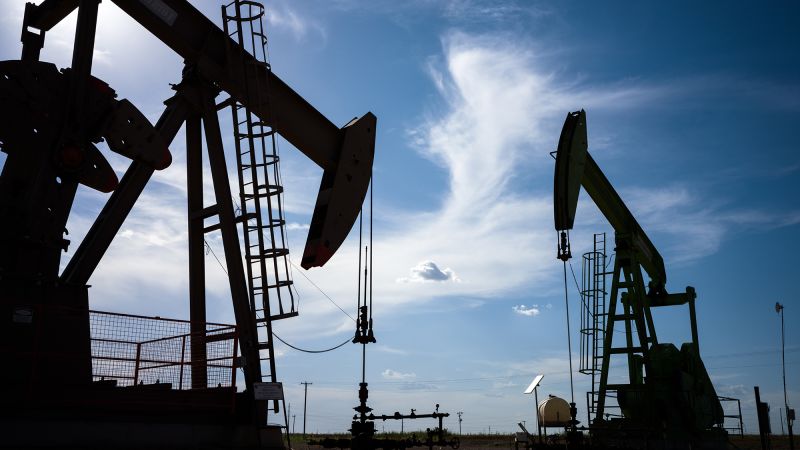During the recent debate between Vice President Kamala Harris and former President Donald Trump, the focus was on oil production despite the fact that oil prices are currently near three-year lows. Harris, previously criticized for her opposition to fracking, noted that she had recently supported opening new fracking leases in the Senate. Trump, on the other hand, supports a rapid expansion of oil production and attacked Harris for policies he believed would harm America’s fossil fuel industry. However, it is essential to remember that Americans still heavily rely on oil for gasoline, diesel, and jet fuel, making it unlikely for the fossil fuel industry to be destroyed.
Despite the politicians’ focus on expanding oil production, it is debatable whether America truly needs significantly more oil. Climate scientists argue that the planet actually needs less oil production rather than more. US crude prices have dropped below $66 a barrel, with gas prices at a six-month low. Additionally, the OPEC+ group of oil-producing nations has expressed concerns about excessive supply and weak demand in China, leading to a delay in increasing production. Although US oil production has reached record levels, experts believe that further substantial increases may be difficult to achieve due to the limited availability of efficient drilling locations.
Some skeptics, such as Bob McNally, doubt that US oil output can spike dramatically, citing that the president does not have the power to quickly ramp up production. Trump, on the other hand, has boasted about his ability to lower gas prices, claiming that they fell below $2 a gallon during his presidency. However, it is important to note that this low price was a result of the recession caused by the pandemic shutdowns. Historically, gas prices have dropped below $2 a gallon during times of economic crises, which is not necessarily a sustainable or desirable state for the economy.
It would likely require an extreme or calamitous event for gas prices to drop below $2 a gallon once again. While a future president may promise to open up drilling permits and expand fracking areas, there is no guarantee that there will be a market for the increased oil production. Additionally, the financial viability of expanding oil production for companies may be questionable. Therefore, candidates should consider the potential consequences of promoting increased oil production and fracking, taking into account the broader economic and environmental implications.
In conclusion, the debate over oil production between Harris and Trump underscores the complex relationship between energy policy, economic stability, and environmental concerns. While both candidates advocate for varying approaches to oil production, it is crucial to consider the long-term impacts of such policies on the economy, the environment, and global energy markets. As the world transitions towards cleaner energy sources, policymakers must navigate the challenges of balancing energy security, economic growth, and climate sustainability. The future of America’s energy sector will undoubtedly be shaped by decisions made in the coming years regarding oil production and environmental conservation.


